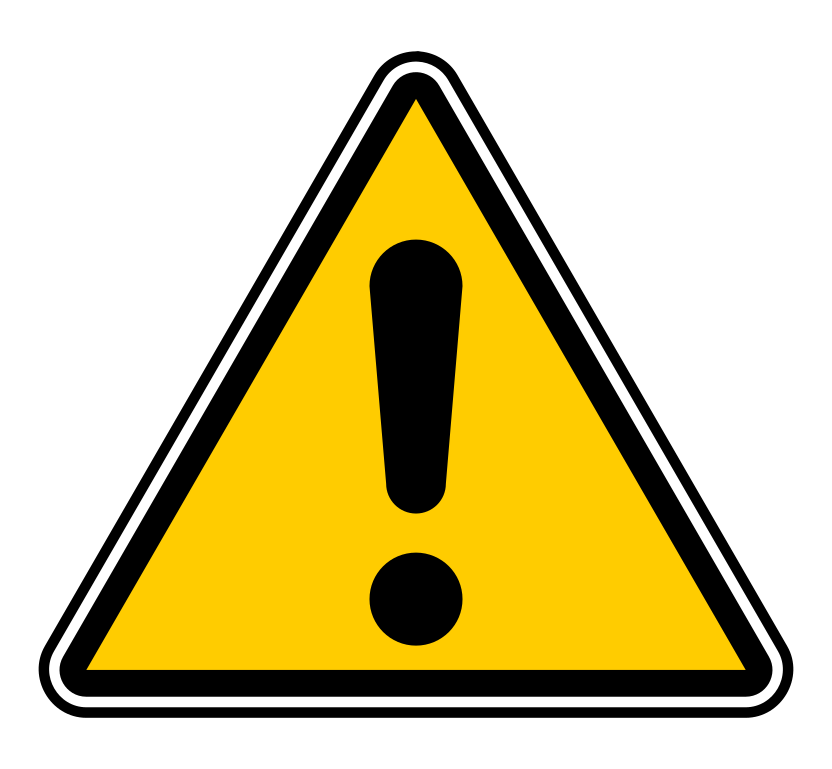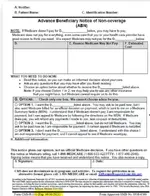What is an ABN?
ADVANCE BENEFICIARY NOTICE (ABN)
A notice that a doctor or supplier should give a Medicare beneficiary when furnishing an item or service for which Medicare is expected to deny payment. If you do not get an ABN before you get the service from your doctor or supplier, and Medicare does not pay for it, then you probably do not have to pay for it. If the doctor or supplier does give you an ABN that you sign before you get the service, and Medicare does not pay for it, then you will have to pay your doctor or supplier for it. ABN?s only apply if you are in the Original Medicare Plan. They do not apply if you are in a Medicare Managed Care Plan or Private Fee-for-Service Plan.https://capturebilling.com/medicare-advance-beneficiary-notice-abn-a-quick-how-to/
The legal aspect can vary from state to state, and payor to payor (assuming in network, and have a contract which is a legal document.)
The ethical aspect to me is more of a "customer service" issue. If it is something that I would reasonable expect the provider's office to know ahead of time, it is in EVERYONE'S best interest to have some type of ABN. The patient does not want to feel as though they were tricked or taken advantage of, and the provider's office wants to be paid for services rendered. A signed document prior to services providing the cost does just that.
CHECK WITH YOUR PAYER!
Some commercial non-Medicare plans are starting to require healthcare providers to obtain ABNs when the insurance plan does not cover a procedure or service, and when the patient is responsible for out-of-pocket expenses.
You can modify the Medicare Part B ABN form and remove the word Medicare and replace it with the name of the medicare insurance carrier. Most vision care plans do not require the provider to obtain an ABN, but always verify.
FFS ABN | CMS
The Advance Beneficiary Notice of Noncoverage (ABN), Form CMS-R-131, is issued by providers (including independent laboratories, home health agencies, and hospices), physicians, practitioners, and suppliers to Original Medicare (fee for service - FFS) beneficiaries in situations where Medicare...
Required vs. Voluntary ABN
Medicare has defined the use of the ABN into two categories: required and voluntary.
Required
The service or item is a benefit of Medicare (normally payable) but due to restricted coverage will not be paid. For example:
Voluntary
- Therapy services that have exceeded the cap amount
- Exceeded frequency limits
- Not reasonable or necessary (ex: diagnosis restriction)
- Skilled nursing services for a patient who is not homebound
The service or item is not a benefit of Medicare (never payable). The use of the ABN in this circumstance is a courtesy to the patient, so that the patient can make an informed decision prior to the service being rendered. It also allows your office to provide documentation in case the cost of the service to the patient is questioned at a later date.
A reasonable belief that the service or item that is normally payable will be denied than an ABN is prohibited from being issued.
Other circumstances were you are prohibited from issuing an ABN include:
- To make a beneficiary liable for Medically Unlikely Edit (MUE) denials
- To make a beneficiary liable who is under great duress or in a medical emergency
- To make a beneficiary liable for a code that was paid as part of a bundle service
- To make a beneficiary liable for a service payable by Medicare.

When (and When Not) to Issue an ABN
Medicare defines the use of the Advance Beneficiary Notice (ABN) into two categories: required and voluntary.




